|
|
|
|
8th COGNO Annual Scientific Meeting
’Where the Future Lies’
Friday 23rd - Saturday 24th October 2015
Stamford Plaza Brisbane, Queensland, Australia
INTERNATIONAL SPEAKERS
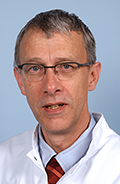 Professor Martin J. van den Bent, MD, PhD Professor Martin J. van den Bent, MD, PhD
Brain Tumor Center at Erasmus MC Cancer Center, Rotterdam, the Netherlands
After completing his training as a neurologist Martin J. van den
Bent joined in 1992 the Neuro-Oncology Unit of Erasmus MC - Daniel den
Hoed Cancer Center in Rotterdam, the Netherlands. This neuro-oncology
unit is focused on the treatment of primary brain tumors and on
neurological complications of cancer and its treatment. In 2002 he
became the head of the unit, which was in 2013 integrated into the
Brain Tumor Center at Erasmus MC Cancer Center. In 2007 he became
professor of Neuro-Oncology at Erasmus University. He has been the
principle investigator of a large number of international multicenter
phase II and III trials on both high and low grade glial tumors, most of
which were conducted through the EORTC Brain Tumor Group. Many of these
trials included translational research focusing on the identification
of prognostic and predictive molecular parameters of outcome to
treatment, and which were key in the establishment of the standard of
care of diffuse glioma. After being the EORTC Brain Tumor Group
secretary from 1996-2002 he served for 6 years as the chair of this
internationally well recognized group. He is currently the chair of the
EORTC Clinical Research Division. He has established and co-chaired four
editions of the bi-annual EORTC-EANO-ESMO educational course on brain
tumors, and was between 2001 and 2003 the chair of the Dutch
Neuro-Oncology Working group. He was awarded in 2004 and in 2014 the
award for excellence in clinical research by the Society for
Neuro-Oncology. Prof van den Bent has published widely both on the
treatment of primary brain tumors and on neurological complications of
systemic cancers. He has been chairing and lecturing at numerous
national and international educational symposia and scientific meetings
on neuro-oncology, and he is on the editorial board of several oncology
journals. He wrote many chapters in textbooks on neuro-oncology, and is
active in the Response Assessment in Neuro-Oncology (RANO) group
revising the endpoints and response criteria of trials in
neuro-oncology.
|
 Professor Vinay K. Puduvalli, MD Professor Vinay K. Puduvalli, MD
Dr Vinay Puduvalli is a tenured Professor and the Director of the Division of Neuro-Oncology at The Ohio State University Wexner Medical Center and Comprehensive Cancer Center where he holds the Sanford/Rife Chair in Neuro-oncology. Dr. Puduvalli received his medical degree from Bangalore Medical College in Bangalore, India in 1989. He then completed a residency in Neurology at The University of Texas Health Sciences Center in Houston followed by a fellowship in Neuro-Oncology at MD Anderson Cancer Center, Houston before joining the faculty there in 1999. He was the director of neuro-oncology fellowship and director of clinical research practicing in MD Anderson for over 15 years. In January 2013, he was recruited to The Ohio State University as the director of the Division of Neuro-Oncology and as co-leader of the brain tumor research group. He also serves as the Medical Director of the Neurological Malignancies service line in the James Cancer Hospital and of the Brain and Spine Tumor Center. His academic interests are focused on patient oriented research using a combination of laboratory based, translational and clinical studies. He has been the principal investigator of several single and multi-institution clinical trials targeting malignant gliomas including through the North American Brain Tumor Consortium and the Brain Tumor Trials Collaborative and serves on the brain tumor committee of the Alliance Clinical Trials Network. He has served on several grant review committees and on various advisory boards for development of novel drugs. He has a strong commitment to education and has mentored a large number of medical students, fellows and junior faculty. His laboratory efforts are focused on epigenetic characterization of gliomas by determining key promoter level interactions of DNA methylation with the stemness genes that regulate their expression; the overall goal of this effort is to identify epigenetic switches governing stem to differentiated states and identify novel therapeutic targets; His lab is also focused on new drug development and testing by characterizing the role of chromatin modification and the role of HDAC in stemness and drug resistance in glioma cells and glioma stem cells. His research efforts have been continuously funded through peer-reviewed federal and nonfederal grants including for studies in novel drugs against gliomas, studies in apoptosis and differentiation and in epigenetics of gliomas. His research is aimed at providing new insights into mechanisms of drug resistance and to translate these findings into clinical trials against brain tumors.
|
 Professor Amy B Heimberger, MD Professor Amy B Heimberger, MD
For further information, please visit http://faculty.mdanderson.org/Amy_Heimberger/Default.asp?SNID=1473507245
|
AUSTRALIAN SPEAKERS AND EXPERTS
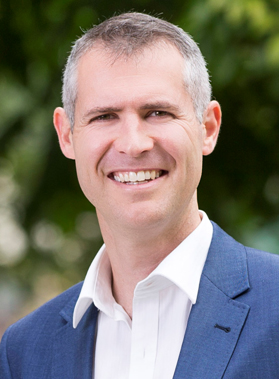 Dr Bryan Day Dr Bryan Day
Dr Bryan Day holds a PhD from the University of Queensland and is the Team Head of the Translational Brain Cancer Research Laboratory at the QIMR Berghofer Medical Research Institute. He and his team focus on the most common and aggressive form of brain cancer, Glioblastoma (GBM) in adults and the most common brain cancer in children, Medulloblastoma. He is a Director for the Australian Society of Medical Research (ASMR) and is passionate about maintaining the ongoing success and sustainability of medical research in Australia. Among his achievements have been the development of a brain tumour bank at QIMR Berghofer and the characterisation of the receptor EphA3 as a therapeutic target in brain cancer. This research has led to clinical testing of a novel EphA3 therapeutic antibody for aggressive treatment refractory brain cancers. Dr Day’s main research focus is on understanding brain cancer cell biology and identifying novel therapeutic agents to treat these aggressive diseases.
|
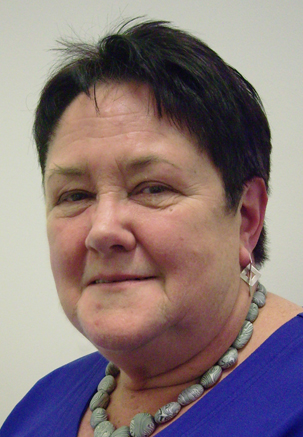 Ms Marcia Fleet Ms Marcia Fleet
Ms Marcia Fleet is a Cancer Care Coordinator in the Neuro-Oncology unit at Royal Melbourne Hospital. Trained as a radiation therapist and worked for many years in departments in Victoria and NSW. This experience of many years in oncology works well with the care coordination position. In the CCC position I work with the medical staff to support the patients and their families from before diagnosis often to end of life. I am the go to person within the unit. Run a support group for patients with high grade tumours.
|
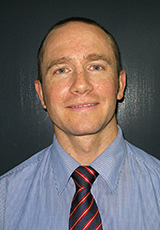 A/Prof Matthew Foote A/Prof Matthew Foote
A/Prof Matthew Foote is a Staff Specialist in Radiation Oncology at
Princess Alexandra Hospital, Brisbane specialising in stereotactic
brain and body radiotherapy, neuro-oncology, melanoma and head and neck
cancer. He has successfully lobbied for and established the first
public Gamma Knife facility in Australia and is Co-Director of the
unit. He is an accomplished clinical researcher; Study Chair for an
international Phase III trial for neurotropic melanoma as well as
Principle Investigator of a number of national and institutional
clinical trials. He is widely published in various journals and has a
number of translational research collaborations in cutaneous SCC and
melanoma at the Translational Research Institute, Brisbane.
|
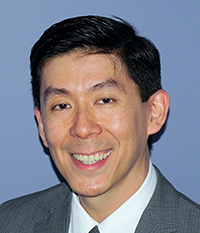 A/Prof Hui Gan A/Prof Hui Gan
A/Prof Hui Gan is a medical oncologist, currently working at the Joint
Austin Ludwig Oncology Unit, Austin Health (Melbourne, Australia). He
graduated from Melbourne University in 1995 with a bachelor of medicine
and surgery (MBBS). He became a Fellow of the Royal Australian College
of Physicians in 2003. Thereafter, he obtained his PhD from Melbourne
University for translational research focusing on the development of
tumour-specific anti-EGFR antibodies with improved tumour targeting
capability and reduced toxicity. He completed a Fellowship in Drug
Development at the Princess Margaret Hospital (Toronto, Canada) in 2009
before returning to Melbourne, Australia. Currently, he is a medical
oncologist at Austin Health where he specializes in head and neck
cancer, primary brain tumours and phase I/II clinical trials. He holds a
concurrent appointment as a senior clinical research fellow at the
Ludwig Institute for Cancer Research where he pursues his interest in
targeted agents against cancer, particularly monoclonal antibodies
against EGFR and other member of the ErbB family.
|
 Dr Sam Greenall Dr Sam Greenall
Dr Sam Greenall was awarded his PhD into the viral delivery of recombinant antibodies for use as animal vaccines through the University of Melbourne in 2008. Switching to cancer research, he joined the Hudson Institute of Medical Research as the Ron Evans Cancer Research Fellow to study therapeutic targeting of the receptor tyrosine kinase receptor family in brain cancer. In 2011 he was awarded an OCE postdoctoral fellowship at the CSIRO to study the insulin-like growth factor family in liver cancer and to continue work into analysing mutant forms of the epidermal growth factor receptor (EGFR) in brain cancer and how these contribute to tumorigenesis. Having recently returned to the Oncogenic Signalling Laboratory at the Hudson Institute of Medical Research, Dr Greenall is determining why existing therapeutics targeting the EGFR in brain cancer are not efficacious in the clinic and conducting research into the potential of precise targeting of multiple aspects of the cell cycle and transcriptional apparatus through irreversible inhibition of cyclin-dependent kinase 7 for brain cancer therapy. This work involves analysing the in vitro and in vivo biochemical and biological responses of several patient-derived primary gliomasphere cell lines, which accurately reflect individual patient genotypes and phenotypes, to novel types of therapeutics.
|
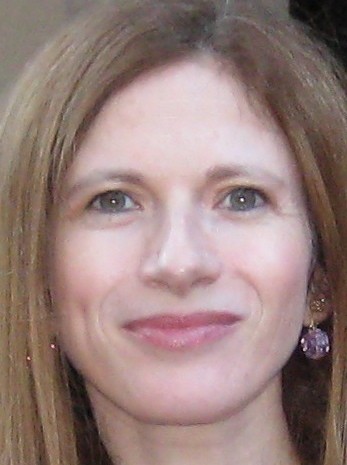 Dr Liz Hovey Dr Liz Hovey
Dr Hovey is a Senior Staff Specialist in Medical Oncology at
Prince of Wales Hospital (POWH), Conjoint Senior Lecturer at UNSW and
Honorary Associate of the University of Sydney. After completing
advanced training at Royal Prince Alfred Hospital, she completed further
post-graduate training at Columbia-Presbyterian Medical Centre, New
York, NY, USA (1998-2001) during which time she was the recipient of a
full scholarship to complete a Master of Biostatistics in
Patient-Oriented Research at Columbia University School of Public Health
(1999-2001). Prior to her 2007 appointment at Prince of Wales Hospital
she was a medical oncologist at Liverpool Hospital.
Liz’s main areas of expertise and research interest are
neuro-oncology, genitourinary oncology and geriatric oncology. She is
the current Chair of COGNO’s SAC (Scientific Advisory Committee),and is
the Co-Convenor of the upcoming 2016 COGNO-ASNO ASM as well as being
COGNO’s Treasurer (& previous Secretary)/Operations Executive
Member. She was a previous Chair of the COSA (Clinical Oncological
Society of Australia) Neuro-oncology Group after 2 elected terms
(2006-2010); Co-Founder and subsequent Deputy Chair of the NSW Cancer
Institute Neuro-oncology Group (elected for a second term). She was the
Project Officer for the development of “Australian Clinical Practice
Guidelines for the Management Adult Gliomas: Astrocytomas and
Oligodendrogliomas” on behalf of Australian Cancer Network, and was on
the Working Party and Co-Editor of the subsequent matching Consumer
Guidelines. In 2014 she was the co-author of a chapter for the US
textbook “Neuro-Onoclogy” (editors: Mark Bernstein/Mitchel Berger). She
is an inaugural member of the Editorial Board of Neuro-Oncology Practice
(published by Oxford Press) as well as being a Review editor for
Frontiers in Neuro-Oncology and a neuro-oncology reviewer for Asia
Pacific Journal of Clinical Oncology.
In 2013 she was an invited COSA ASM plenary speaker speaking
on the topic of elderly patients with glioma; in 2014 she was the
keynote speaker for New Zealand Cancer Society (giving 12 talks around
New Zealand on the topic of brain tumours) and an invited speaker at a
WFNO (World Federation of Neuro-Oncology) Masterclass in Istanbul,
Turkey. In June 2015, she presented a Neuro-oncology Oral Presentation
at ASCO, presenting Part 2 results of the CABARET study on behalf of
COGNO co-investigators.
|
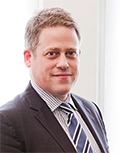 Dr Ben Jonker Dr Ben Jonker
Dr Jonker is a neurosurgeon based in Sydney. He completed his
neurosurgical training in Australia, and subsequently undertook
subspecialty training in Stereotactic and Functional Neurosurgery in
Calgary, Canada and UCLA, Los Angeles.
Dr Jonker has a particular interest in conditions treated with
stereotactic and functional neurosurgery – and treats these with both
conventional neurosurgery and stereotactic radiosurgery. His main
interests are brain and pituitary tumours including awake surgery and
brain mapping, trigeminal neuralgia, movement disorder surgery and
endoscopic surgery for hydrocephalus.
|
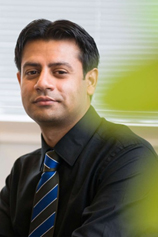 Dr Anchit Khanna Dr Anchit Khanna
Dr Anchit Khanna, M.D., MMedSci, PhD, is a NH&MRC Research
Fellow at the Lowy Cancer Research Center, UNSW Medicine, Sydney,
Australia. His interest lies in identifying molecular mechanisms for
cancer initiation and progression, especially with respect to the role
of constitutive DNA-damage and genomic instability. His work has been
published in the leading journals of the field like Cancer Research,
Cancer Discovery and the Journal of National Cancer Institute. He has
received several prestigious awards like the EACR-Young Cancer
Researcher Award (Highly Commended), the AACR-GlaxosSmithKline
Outstanding Clinical Scholar Award (2011) and the Scientist of the Year
Award, FUURT, Finland (2011) for his work. He has also been invited to
write authoritative reviews for prominent cancer journals like Cancer
Research and International Journal of Cancer on his work on Cancerous
inhibitor of Protein Phosphatase 2A (CIP2A) and DNA-damage. Dr Khanna is
very much interested in uncovering innovative ways to make clinical
trials more effective and the various cancer therapies less toxic, safer
and as cancer-specific as possible.
|
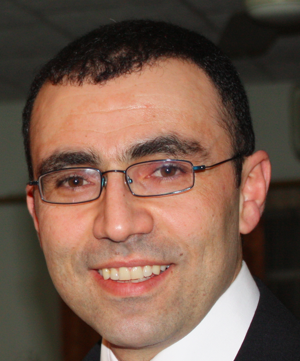 Dr Mustafa Khasraw Dr Mustafa Khasraw
Dr Mustafa Khasraw acts at the NHMRC Clinical Trials Centre of The
University of Sydney as a senior research fellow and clinical lead for
the Cooperative Trials Group for Neuro-Oncology (COGNO). In addition, Dr
Khasraw is a medical oncologist at Royal North Shore Hospital and over
the previous 5 years he worked in Geelong as a medical oncologist and
cancer research fellow at Deakin University with leading role in several
clinical and translational laboratory programs.
After his medical oncology training in Sydney he undertook an oncology
fellowship training in the US at Memorial Sloan-Kettering Cancer Centre
in New York. His fellowship was both in neuro-oncology and in breast
cancer.
Mustafa Khasraw is leading several multi centre clinical trials and he
acts regularly as a reviewer for a number of scientific journals and
grant review committees.
|
 Dr Zarnie Lwin Dr Zarnie Lwin
Dr Zarnie Lwin is a Medical Oncologist who specialises in the treatment of thoracic oncology and neurooncology.
Dr Lwin obtained her undergraduate medical degree from Rangoon, Burma. She then pursued specialist physician training at Chris Hani Baragwanath hospital, Johannesburg to qualify as a Fellow of the Colleges of Physicians, South Africa, before relocating to Australia. She completed further physician and specialist medical oncology training at the Royal Brisbane & Women’s Hospital and Princess Alexandra Hospital, and was admitted as a Fellow of the Royal Australasian Colleges of Physicians.
Dr Lwin then undertook a two year Fellowship at the Princess Margaret Hospital, University of Toronto, Canada, in the areas of neurooncology, thoracic oncology and health services research. During this time she trained under the close mentorship of internationally renowned experts to develop expertise in the complex management of these tumours and gain higher level research skills, which has led to strong ongoing collaborations nationally and internationally. She returned to Australia in 2010 to work at Mater Health Services prior to her current role at the Royal Brisbane Hospital and The Prince Charles Hospital.
Dr Lwin is the Vice-Chair and Treasurer of the Medical Oncology Group of Australia (MOGA), and an active member of the Cooperative Trials Group for Neuro-Oncology (COGNO), Australia. She has convened multiple Annual Scientific Meetings in Australia and has authored and co-authored several peer reviewed publications. Dr Lwin is a Senior Lecturer at the University of Queensland, School of Medicine and has a particular interest in communication skills and new trials/treatments for cancer.
Her unique background experience explains her passion for novel research to improve cancer outcomes for Culturally and Linguistically Diverse communities in Australia.
|
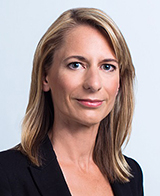 A/Prof Kerrie McDonald A/Prof Kerrie McDonald
A/Prof Kerrie McDonald is the Chair of the Cure Brain Cancer
Neuro-oncology Group at the Lowy Cancer Research Centre, UNSW. She runs a
team of 11 scientists and students working on personalised medicine
where they are matching drugs to the patients’ tumour genome. The group
specialise in biomarker development for use in pre-clinical and clinical
trials.
|
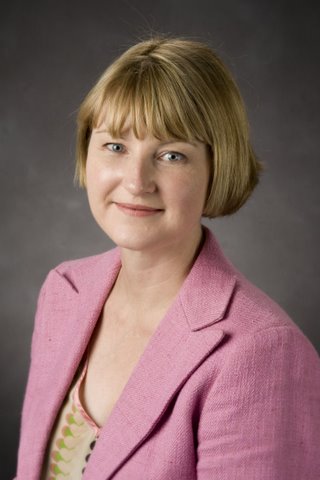 Prof Anna Nowak Prof Anna Nowak
Prof Anna Nowak is an academic Medical Oncologist at Sir Charles Gairdner Hospital in Western Australia, and Professor of Medicine in the Faculty of Medicine, Dentistry and Health Sciences, University of Western Australia.
Prof Nowak’s clinical and research interests are in malignant pleural mesothelioma and neuro-oncology, with a PhD in tumor immunology and post-doctoral fellowship in clinical trials research giving her a niche as a ‘bench to bedside’ researcher who has implemented findings from her laboratory into first-in-man clinical trials. She has been a member of COGNO since its inception and her research in high grade glioma focuses on active participation in clinical trials and collaboration on psychosocial research questions, as well as being co-chair of the AGOG tissue banking and genetic epidemiology project. In her association with COGNO, she is a member of the Scientific Advisory Committee, and is currently the Australian PI of the EORTC CATNON clinical trial, and Trial Management Committee Member of the CABARET study. She has been site principal investigator of numerous clinical trials in high grade glioma at Sir Charles Gairdner Hospital. She has been the lead Principal Investigator of a number of investigator-iniated or NHMRC funded clinical trials and clinical research projects in mesothelioma. Prof Nowak sees around 100 new patients a year with high grade glioma, and is committed to maximizing participation of these patients in clinical research.
|
 Dr Sarah Olson Dr Sarah Olson
Dr Sarah Olson is a VMO neurosurgeon at Princess Alexandra Hospital, Mater Hospitals and Greenslopes Hospital. She is the supervisor of training and chair of the multidisciplinary clinic. She is extensively involved in teaching programs for residents and neurosurgery trainees.
Her interests are brain tumours, functional neurosurgery, endoscopic neurosurgey, pituitary surgery and trigeminal neuralgia. She developed the FMri, tractography and minimally invasive brain surgery program at Princess Alexandra Hospital and was the principal advocate in obtaining the first recurrent funding for DBS in a public hospital in Australia.
She has organised a state wide brain tumour banking service in Queensland the first of its kind with recurrent funding. Six hospitals are involved with all brain tumours, metastases and pituitary tumours being banking. Dr Olson is involved in the Gamma knife program at Princess Alexandra Hospital and has published extensively in neurosurgery.
|
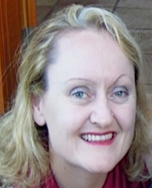 A/Prof Tamara Ownsworth A/Prof Tamara Ownsworth
A/Prof Tamara Ownsworth is a clinical neuropsychologist with 18
years of clinical and research experience in the brain injury field. She
is based in the School of Applied Psychology at Griffith University and
is a member of the Griffith Health Institute. Tamara’s main research
interests relate to the neuropsychological and psychosocial effects of
neurological disorders, such as traumatic brain injury, stroke and brain
tumour. She is President-Elect of the Australasian Society for the
Study of Brain Impairment and a Chief Investigator in the NHMRC Centre
of Research Excellence in Brain Recovery.
|
 Dr Mark Pinkham Dr Mark Pinkham
Dr Mark Pinkham BM BCh MA(Hons)(Oxon) FRANZCR is a recently appointed Staff Specialist in Radiation Oncology at Princess Alexandra Hospital, Brisbane specialising in neuro-oncology, melanoma and stereotactic radiosurgery. He graduated from Oxford University in 2005 and completed an 18-month Fellowship in neuro-oncology at Christie Hospital, UK in June 2015.
|
 Dr Thomas Robertson Dr Thomas Robertson
Dr Thomas Robertson is Director of Neuropathology for Pathology Queensland and a consutlant senior medical officer for the Lady Cilento Childrens' Hospital, Princess Alexandra Hospital and Forensic and Scientific Services in Queensland. He is also a senior lecturer in the Department of Molecular and Cellular Pathology at the University of Queensland.
|
 Dr Michael Rodriguez Dr Michael Rodriguez
Dr Michael Rodriguez is a neuropathologist based in Sydney. After completing his anatomical pathology training in Sydney and post fellowship training in neuropathology in Western Australia he spent the next decade in the USA, for 5 years as a research fellow with Prof Elias Lazarides in the Division of Biology at Caltech working on possible animal models for Alzheimer’s disease and subsequently at USC School of Medicine as a Visiting Assistant Professor of Research Pathology, as a Clinical Fellow in Pathology at Harvard Medical School and as a Research Fellow in Medicine at Massachusetts General Hospital characterizing brain degeneration mutants in the developing zebrafish brain. While in the US he also completed training and board certification in anatomical pathology and neuropathology. He subsequently returned to Sydney and until recently worked as a neuropathologist for the Department of Forensic Medicine. He is currently a consultant neuropathologist at St Vincent’s Hospital, Prince of Wales Hospital, Sydney Children’s Hospital and Douglass Hanly Moir Pathology. He is a Clinical Senior Lecturer at Macquarie University and an Honorary Associate of the University of Sydney.
Michael is passionate about fostering high quality diagnosis in surgical and autopsy neuropathology and has collaborated in tissue-based research projects in a number of fields including human neurogenesis, SIDS research, neurovirology, neuromuscular disorders, neuro oncology and neurodegenerative diseases. He is a member of the NSW neuro-oncology group and serves on a number of committees including the RCPA Anatomical Pathology Advisory Committee and the NSW Tissue Resource Centre Management Committee.
|
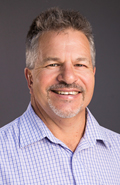 Prof Stephen Rose Prof Stephen Rose
Prof Rose is a Senior Principal Research Fellow within the
Australian e-Health Research Centre, CSIRO – Digital Productivity
Flagship. He is also an honorary Principal Research Fellow within the UQ
Centre for Clinical Research and is the acting Director of the newly
established Herston Imaging Research Faculty (HIRF), located at the
Royal Brisbane and Women’s Hospital. His research interests include the
development and application of novel medical imaging technology and
clinical image informatics programs to improve management and outcomes
for patients with brain cancer.
|
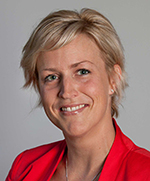 Dr Jodi Saunus Dr Jodi Saunus
Dr Jodi Saunus is a Senior Research Fellow based at the
UQ Centre for Clinical Research, Royal Brisbane Hospital Campus
(Herston, Australia). She was awarded a PhD from the University of
Queensland in 2006 in the fields of molecular biology and cancer gene
regulation, and now works in molecular breast pathology under the
mentorship of Prof Sunil Lakhani. She has published in prominent medical
research journals including Cancer Research, Nature Communications and
The Journal of Pathology.
Her research focuses on identifying new ways to improve the
management of patients with brain metastases in the future, and as such
is multidisciplinary and highly collaborative in nature. This program of
work includes identifying mechanisms of brain metastasis development
and novel therapeutic targets (particularly focused on personalised
therapy and drug repositioning), using in vitro and in vivo models of
metastatic brain tumour development, genomic and transcriptomic analysis
of brain metastases and analysis of therapeutic antibody uptake in
experimental and human brain metastases.
|
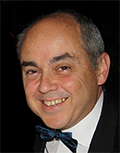 Dr Geoff Schembri Dr Geoff Schembri
Dr Geoff Schembri is a Senior Staff Specialist in Nuclear Medicine
at Royal North Shore Hospital, Sydney Australia. He is involved with a
range of research including optimising lung imaging for pulmonary
emboli, the role of prostate specific membrane antigen in initial
staging and restaging of prostate cancer and in the use of PET imaging
agents in the diagnosis and management of glioma. Specifically, he has
been involved in the use of FET imaging for the delineation of tumour
extent and in the assessment of MRI non specific brain lesions. More
recently, he has begun to assess the utility of lutetium dotate therapy
in anaplastic meningiomas.
|
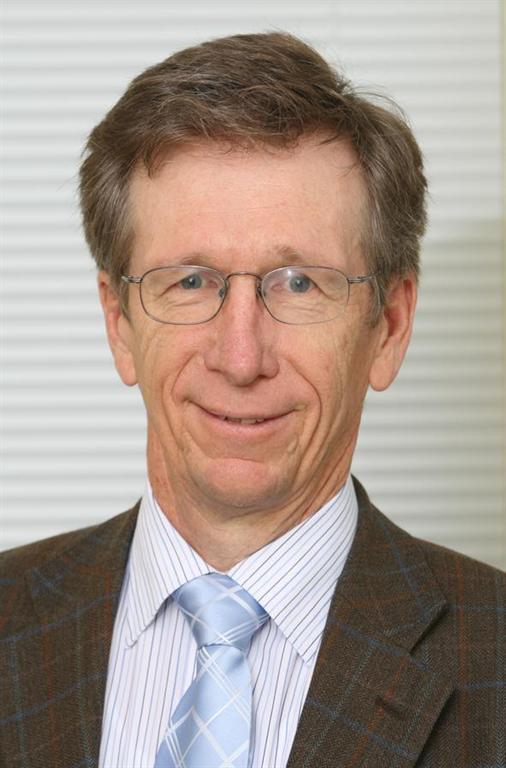 Prof John Simes Prof John Simes
Prof John Simes is Senior Principal Research Fellow and Director of the NHMRC Clinical Trials Centre (CTC), University of Sydney. He is undertaking clinical trials research, with particular interest in clinical trials in cancer, cardiovascular disease, diabetes and neonatal medicine. His research interests include clinical trials methodology and integrating trial evidence with the goal of improving clinical practice and health outcomes. He is the Director of the Sydney Catalyst translational research centre, a virtual centre of cancer researchers in central Sydney and regional NSW. Additionally, he is a member of the Interim Executive that formed in 2012 to drive the development of the Australian Clinical Trials Alliance (ACTA). Professor John Simes practices as a medical oncologist in neuro-oncology at Royal Prince Alfred Hospital and the Chris O’Brien Lifehouse. He has been awarded the Cancer Achievement Award by the Medical Oncology Group of Australia and the Distinguished Harvard Alum Award (Biostatistics) from Harvard University. He is a member of several research committees, trials groups and boards, including cancer cooperative groups and safety and data monitoring committees.
|
|
|
|
|
|
|